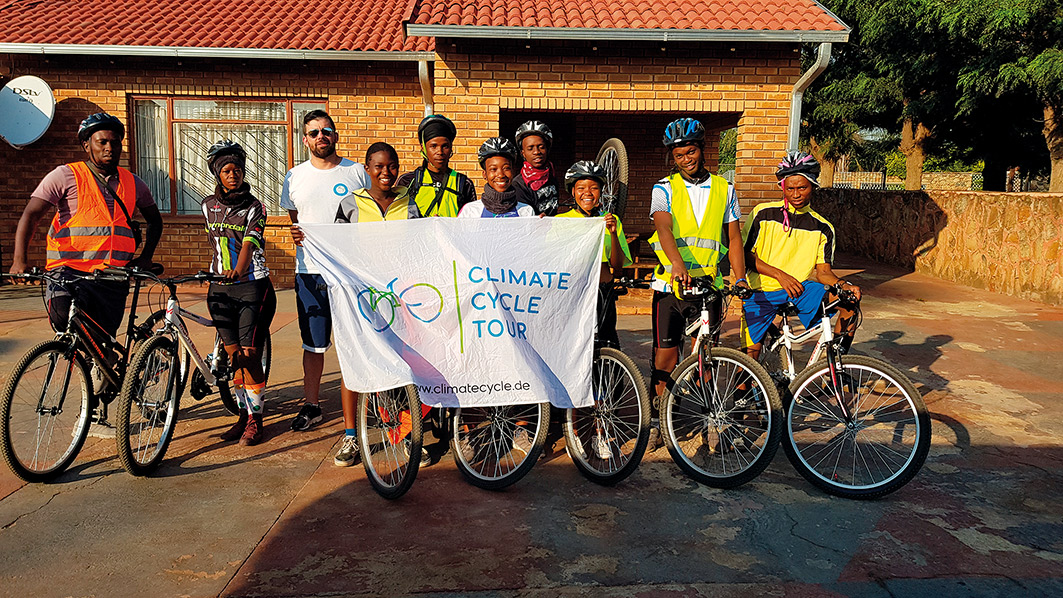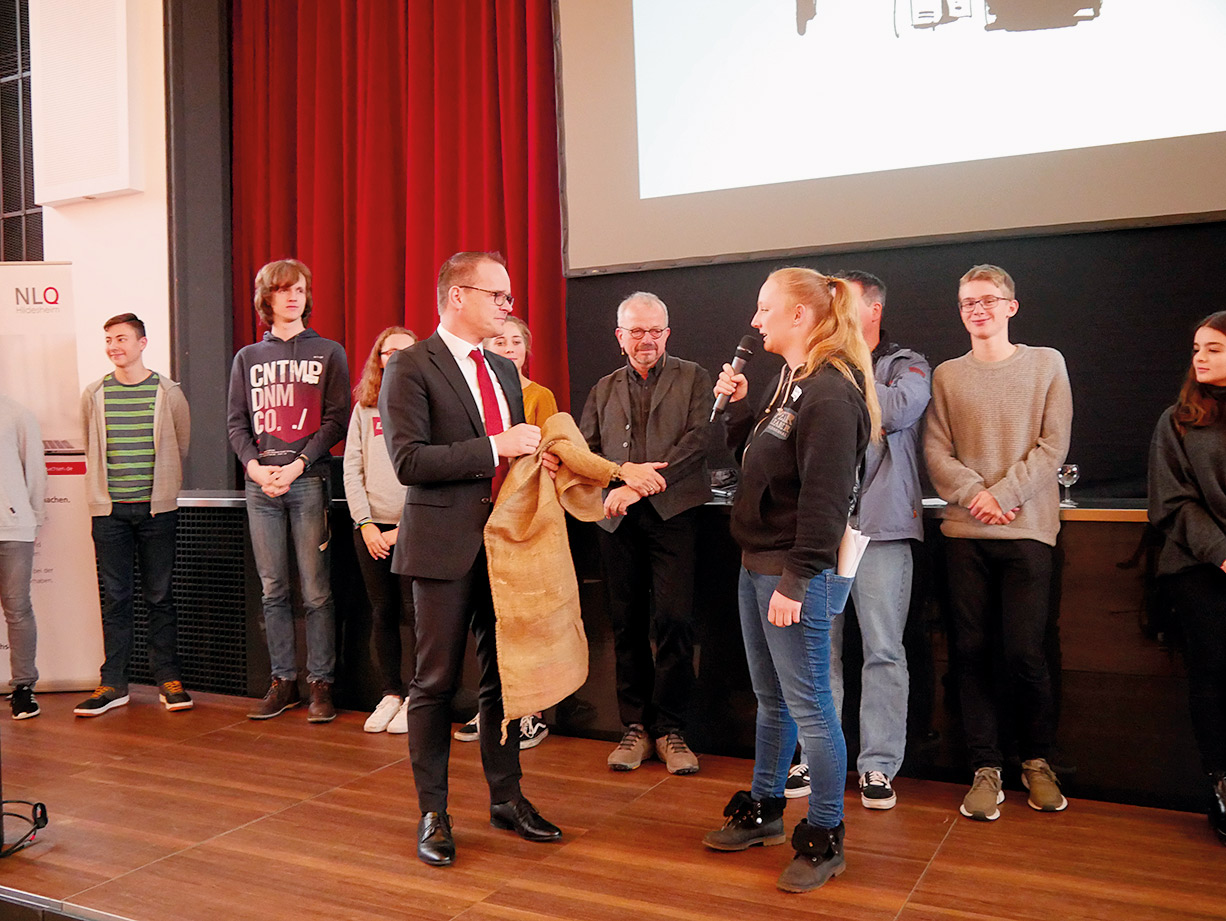International youth project
Meet, think, act – global peers
for sustainable development
Peer-Leader-International e. V.

Die Climate Cycle Tour in Südafrika
Peer Leader International (PLI) is an international youth project whose approach is based on intercultural youth work and peer education. The centre is located in Ostrhauderfehn in Northern Germany. At present, about 200 peer leaders from various backgrounds are active in 10 countries. In close cooperation with international partners, they research issues, design and develop project ideas and then put these into practice. The young people themselves choose the topics based on their everyday life and reality. The aim of all these activities is to inform and mobilise others to work towards achieving the Sustainable Development Goals.
PLI’s partners are grassroots groups and non-governmental organisations. With some of them, PLI has established long-term partnerships, and with others the cooperation is project-specific.
The organisation uses a wide range of educational and learning spaces to arrive at common project themes. Learning takes place outside the school setting, for instance on the internet or through conferences, seminars or project visits. The principle of peer learning is crucial for all activities: At PLI, projects are created whenever young people become interested in a topic. By communicating with each other, they shape ideas and formats for different types of projects.
Here are some examples:
- A seminar on the topic of “youth and politics” gave rise to the idea of developing a preventive educational tool against corruption, which is now available.
- After working in refugee camps in Greece, PLI Germany developed teaching and project modules on the topic of “refugees and migration”. Seminars on the topic were held in Israel and South Africa, where young people compared the situation in their respective countries and exchanged views on issues relating to asylum.
- In Germany, young people from PLI South Africa discovered the idea of the PLI food truck. They developed their own food truck in South Africa and combined it with training courses on healthy nutrition, global agribusiness and knowledge transfer to implement a small start-up business.
- The project “Climate Cycle Tour” deals with the consequences of climate change. It takes the form of a bicycle tour through five countries, with daily public readings of “Noah’s Ark Reloaded” at each stop and discussions with young people about what they can do to combat climate change (see www.climatecycle.de).
However, the work at PLI comes with its own challenges: Direct communication usually takes place through physical encounters, which in turn can cause problems. It is not so much the intercultural misunderstandings and differences that hamper the work, although these occur time and again and are often perceived as stressful. Using English as a common (foreign) language can lead to misunderstandings, and newcomers are often unaccustomed to openly expressing their points of view, especially when older people are present. And while international meetings are full of energy and big ideas, implementing these locally needs a lot of commitment over a long period of time.

Peer leaders submit proposals for
how to improve the school system
to the Minister of Education of the
German state of Lower Saxony
To overcome these challenges, PLI is planning a digital “peer campus”, which will serve as an open platform for exchanging information, generating ideas and coordinating actions in the future. This makes it possible for small-scale collaborations to grow into large, effective projects for a common, sustainable future.